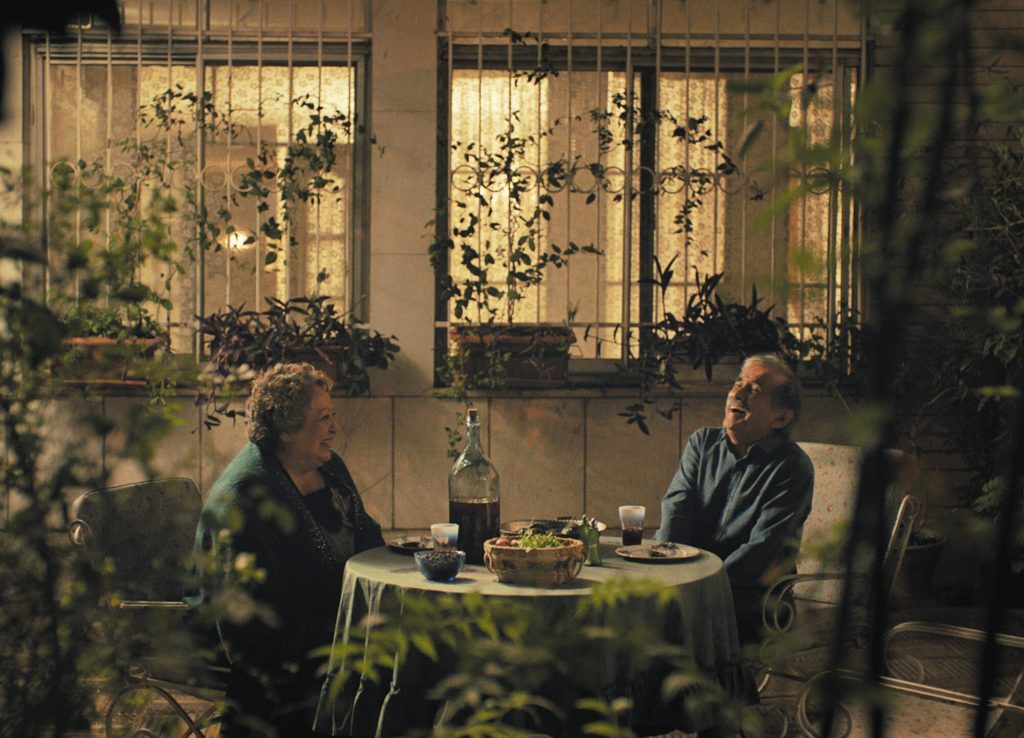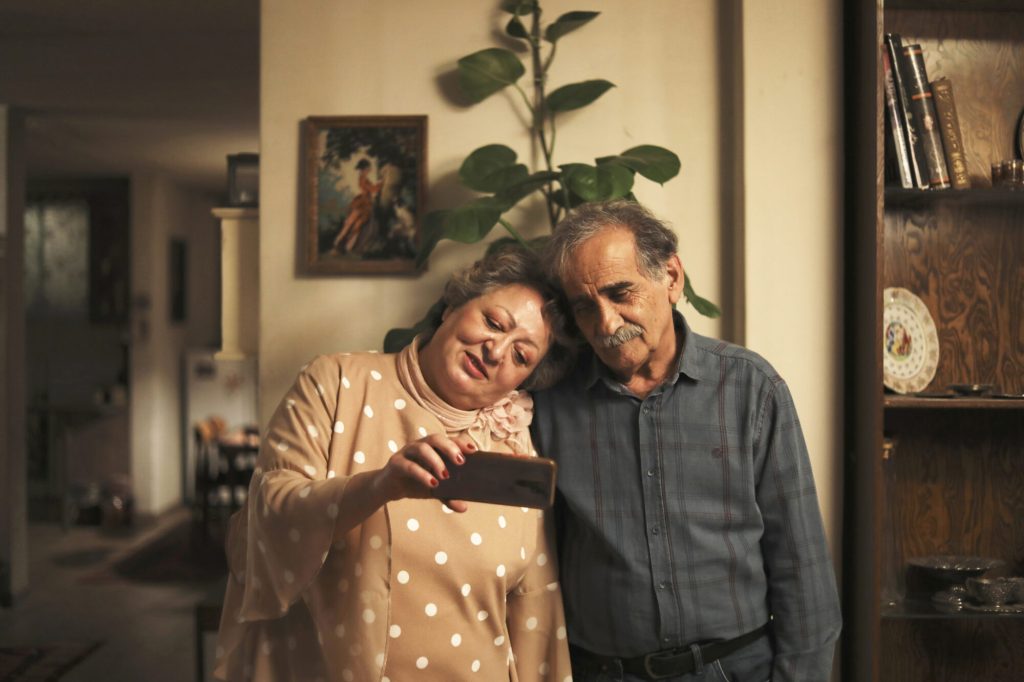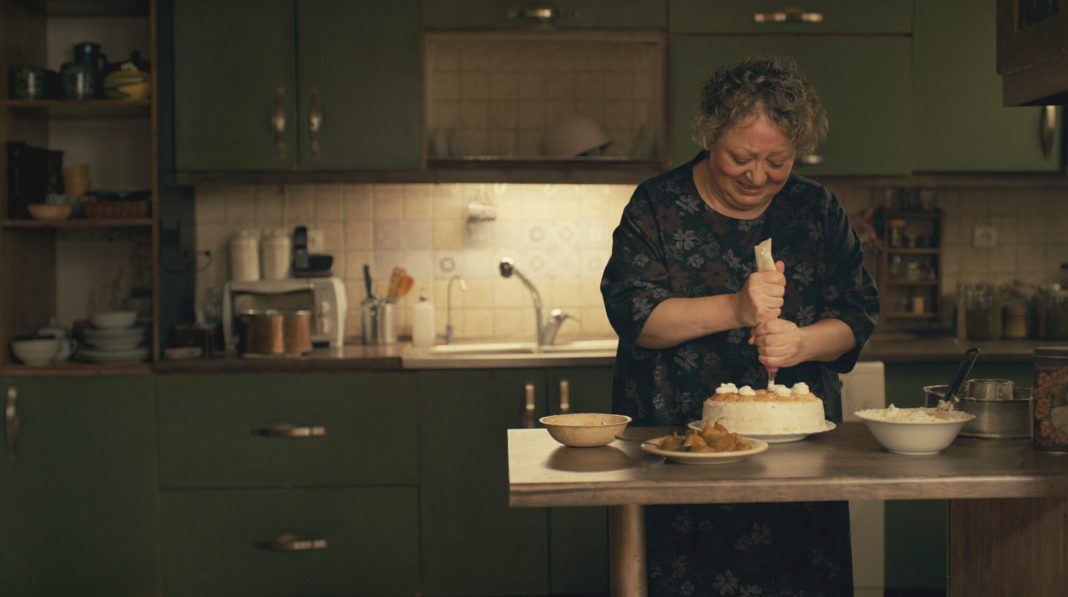This Iranian film tells the story of an lonely Iranian widow who finds meaningful romance with an elderly taxi driver in the later stages of her life.
MY FAVOURITE CAKE. Starring: Lily Farhadpour, Esmaeel Mehrabi, and Khosro Abbasi. Directed by Maryam Moghaddam and Behtash Sanaeeha. Rated M (mature themes). 97 min.
Review by Peter W Sheehan, Jesuit Media Australia
This multi-national romantic drama is about a 70 yr. old lonely widow, Mahin (Lily Farhadpour), who has been a widow for 30 years, and has two children who live abroad. She lives a solitary existence in Tehran, and one day she decides to join a group of women (as she regularly does) for afternoon tea and the women freely reminisce about their lives. Later, in a pensioner’s restaurant, she sees a man who makes her feel alive again and the sparks of romance are kindled. The film is a co-production involving Iran, France, Sweden, and Germany.

The film aroused considerable Government dissent. The passports of its two Directors (Maryam Moghaddam and Behtash Sanaeeha) were confiscated, and both Directors were threatened with criminal action, and Iranian security forces became involved. Pressure by filmmakers and film festivals eventually permitted the film to be seen, and it had its World premiere at the 74th. Berlin International Festival in 2024. The Directors of the film are married to each other, and were prevented from attending the Festival. Berlin gave the film two major Awards: it won the Festival’s Ecumenical Jury competition, and received its FIPRESCI Prize.
The film paints a very realistic picture of Iranian women, and uses images that have been banned in Iranian cinema from the time of the Islamic Revolution. It examines the everyday existence of middle-class women, and vividly depicts the lives of Iranian women in contemporary life. It is a heart-warming tale, delicately told, of a woman who chose to pursue freedom, and companionship in her latter years. In the movie, Mahin decides to revive her capacity to love with Faramarz (Esmaeel Mehrabi), a lonely divorced taxi-driver. The film emphasises the beauty of a loving relationship in a very engaging way. Following an encounter with Iran’s Morality Police, Mahin is attracted by the friendly gaze of Faramarz and she waits by his taxi stand, pretending to know him. She asks him to drive her home and following a taxi ride, she invites Faramarz into her home, and they share an evening together.

The film acknowledges tentatively the couple’s long period of celibacy which is communicated delicately in the movie by them taking a shower together fully clothed, and sensuality between them is simply portrayed by the promise of “a favourite cake” (orange blossom with vanilla cream), which titles the movie. This is a movie which reflects a culture that is defined by a strict political and moral code which is communicated tellingly throughout. The film is strongly critical of the Iranian regime, particularly in its failure to understand and respect women’s rights. The movie is a well-directed and acted depiction of modesty and passion, that is tastefully humane, and affecting. The film is scripted beautifully, and movingly conveys the agony of loneliness in old age.
Peter W Sheehan is an Associate of Jesuit Media


